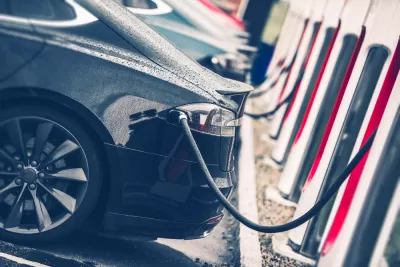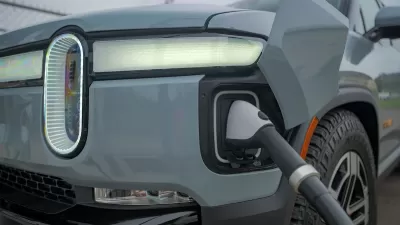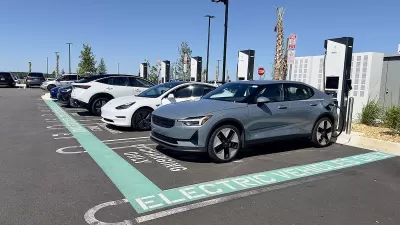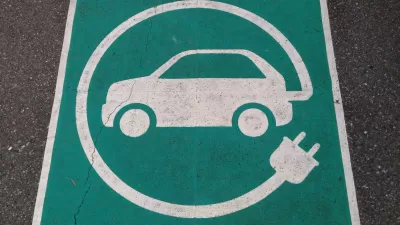Chicago-area municipalities can take advantage of a new grant program to prepare their infrastructure for electric vehicles.

The Chicago suburb of University Park was recently awarded the second-highest score out of a dozen Chicago-area municipalities participating in a program designed to improve their electric vehicle charging networks.
According to an article by Kari Lydersen in Energy News Network, “University Park is in the process of acquiring an EV charging station for electric semi-trucks city leaders hope will increasingly serve its warehouses, and they hope to add electric vehicles to their municipal fleet while also supporting residents to get their own EVs.”
The EV Readiness Program offers guidance to cities and towns to help them update zoning and building codes to facilitate EV charging infrastructure, provides training for first responders in responding to EV fires, and assists with accessing grant programs and incentives. “Last year the Illinois legislature passed the Electric Vehicle Charging Act, which requires new single-family homes and multi-family buildings be EV capable, meaning conduit is laid to allow easy installation of chargers and wiring. State law also prohibits landlords and homeowners associations from unduly interfering with charger installation, and clarifies how renters should pay for electricity used in charging EVs.”
According to Lydersen, “Illinois has been a leader in legislation promoting electric vehicles on the state level. The 2021 Climate and Equitable Jobs Act created incentives for public transit electrification and EV ownership, with a goal of having one million EVs on Illinois roads by 2030.”
FULL STORY: A gold star for EV Readiness: Chicago-area program prepares communities for electric vehicle adoption

Study: Maui’s Plan to Convert Vacation Rentals to Long-Term Housing Could Cause Nearly $1 Billion Economic Loss
The plan would reduce visitor accommodation by 25,% resulting in 1,900 jobs lost.

Placekeeping: Setting a New Precedent for City Planners
How a preservation-based approach to redevelopment and urban design can prevent displacement and honor legacy communities.

Using Old Oil and Gas Wells for Green Energy Storage
Penn State researchers have found that repurposing abandoned oil and gas wells for geothermal-assisted compressed-air energy storage can boost efficiency, reduce environmental risks, and support clean energy and job transitions.

Washington State Plans Ambitious ‘Cycle Highway’ Network
The state is directing funding to close gaps in its existing bike network and make long-distance trips more accessible.

Homeowners Blame PG&E for Delays in ADU Permits
The utility says it has dramatically reduced its backlog, but applicants say they still face months-long delays for approvals for new electrical work.

Rethinking Wildfire Defense: How a Landscape Approach Can Protect Neighborhoods
Post-fire analysis of the Eaton Fire reveals that a landscape approach — including fire-resistant vegetation, home hardening, and strategic planning — can help reduce wildfire risk, challenging assumptions that trees and plants are primary fire hazards.
Urban Design for Planners 1: Software Tools
This six-course series explores essential urban design concepts using open source software and equips planners with the tools they need to participate fully in the urban design process.
Planning for Universal Design
Learn the tools for implementing Universal Design in planning regulations.
Borough of Carlisle
Caltrans
Heyer Gruel & Associates PA
Institute for Housing and Urban Development Studies (IHS)
City of Grandview
Harvard GSD Executive Education
Salt Lake City
NYU Wagner Graduate School of Public Service
City of Cambridge, Maryland





























